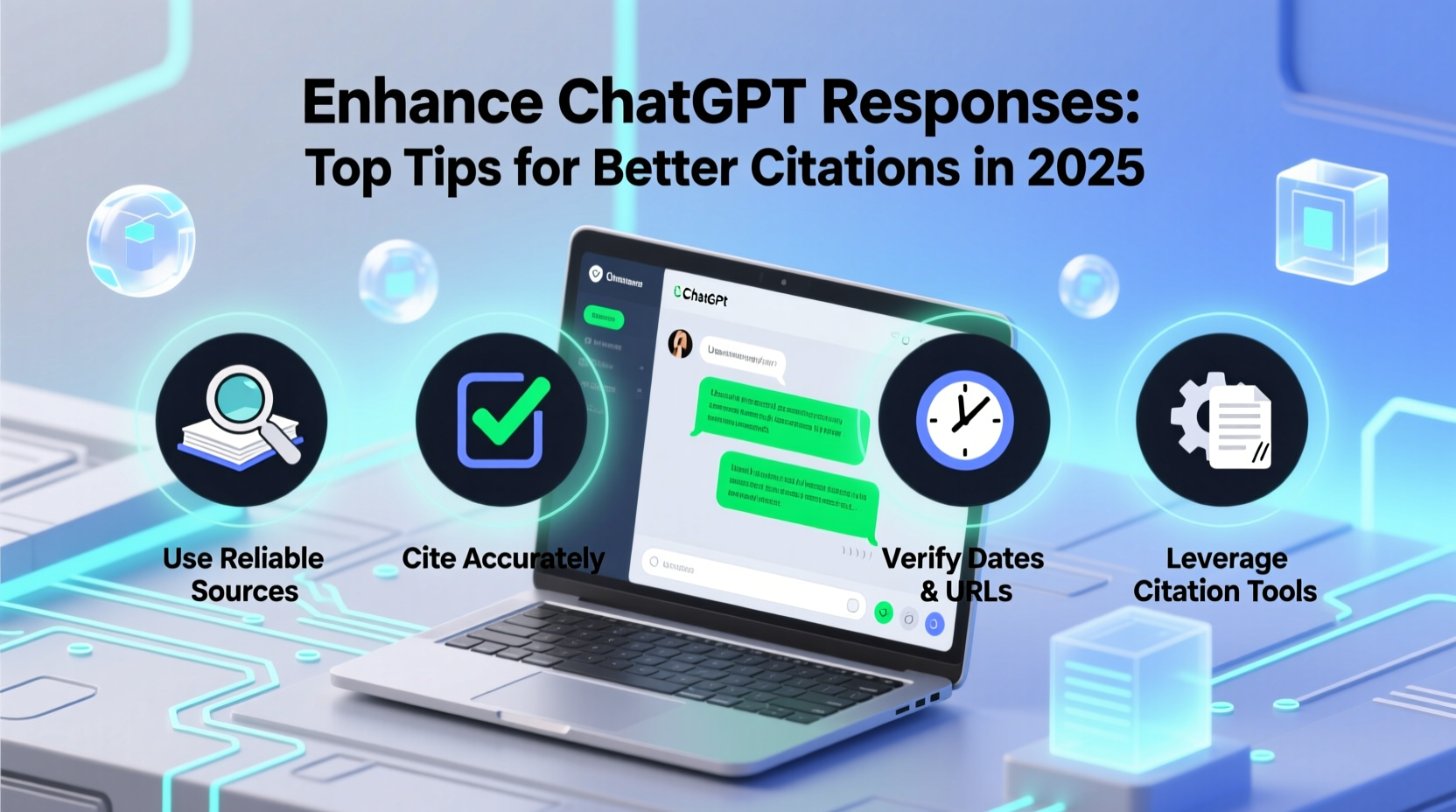The Challenge of Citation in AI: Enhancing ChatGPT's Transparency
A major challenge faced by users of AI tools like ChatGPT is the difficulty in verifying the accuracy of the information provided. This issue arises because ChatGPT does not always present the sources, footnotes, or links for the data it offers in its responses. In response to this challenge, OpenAI has introduced different modes of the GPT model with varied capabilities in source attribution.
ChatGPT's Different Modes and Their Citation Capabilities
According to OpenAI, GPT-4o in free mode offers citations that are basic but traceable, while the paid mode provides enhanced and detailed citations. The premium version provides multiple sources and contextual annotations, ensuring a robust verification method for those requiring in-depth information.
However, there are methodologies users can apply to improve the reliability of the results, even with provided citations:
Strategies to Encourage ChatGPT to Provide Sources
-
Craft Queries for Source Inclusion: Start by posing questions that inherently require citations. It is often more effective to ask questions that require longer, more detailed answers. For instance, exploring complex theories like cognitivism, behaviorism, and constructivism prompts ChatGPT to cite sources.
-
Explicit Source Request: Ask ChatGPT directly for its sources. A simple prompt like "Please provide sources for the previous answer" can yield results. Adding specificity, such as "Please provide URL sources," may help in receiving clickable links to sources.
-
Pursue Higher-Quality Sources: Encourage the AI to provide more reputable sources by explicitly requesting them or suggesting preferred types of sources, like scholarly articles. For example, "Please recommend peer-reviewed journals that discuss learning theories."
Evolving with ChatGPT: Beyond Given Sources
While the AI can deliver sources, users should also take responsibility for verifying and exploring further. Here are methods to validate and enhance research using ChatGPT:
-
Validate and Verify: Critically assess the links and sources provided by ChatGPT. Experiences suggest that only a fraction of sources are directly relevant or accurate. Use these as starting points for independent web searches or library queries.
-
Utilize Additional Research Tools: Depend not solely on AI but also explore databases like Google Scholar, JSTOR, or consult librarians and subject-matter experts to ensure the accuracy and comprehensiveness of research.
FAQs: Understanding ChatGPT's Source Capabilities
| LLM Version | Source Capability |
|---|---|
| GPT-3.5 | Basic, often without reliable sources |
| GPT-4 | Improved but still may include incorrect URLs unless specified |
| GPT-4o | Better context and source accuracy; paid version allows post-October 2023 web searches |
The accuracy and detail in sources provided by ChatGPT can vary significantly depending on the version used. Understanding and leveraging different models and modes can enhance the reliability of the citations.
Final Thoughts on AI-Driven Research Assistance
While AI tools like ChatGPT can significantly aid in initial research stages by pointing users to potential resources, the responsibility to verify and expand upon these suggestions firmly rests on the user. Viewing ChatGPT as a preliminary guide rather than an infallible source-providing tool ensures a more ethical and comprehensive approach to research.











 浙公网安备
33010002000092号
浙公网安备
33010002000092号 浙B2-20120091-4
浙B2-20120091-4